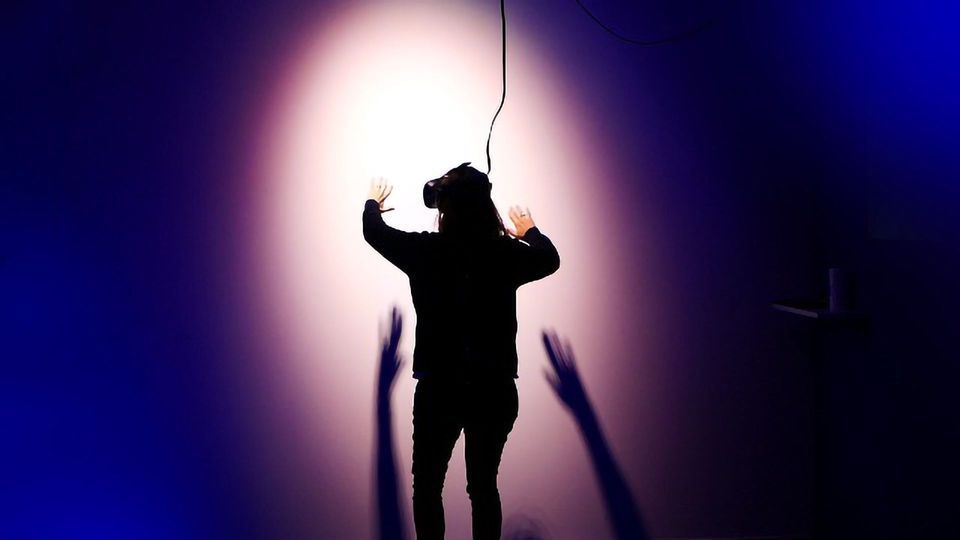Virtual Sanity: People Who Use VR Headsets Enjoying Life More During Lockdown

Complete the form below to unlock access to ALL audio articles.
People who use virtual reality headsets as a way of passing the time during lockdown are exercising more vigorously and feeling better about life.
A new study, led by the University of Portsmouth, examined the use of VR technology in adults of all ages from around the world.
It is one of the first to investigate the impact of VR during lockdown, and is published in the journal Health and Technology.
The results were clear: Those who use VR headsets as a way of passing time during lockdown were using the headsets for much more than playing games. They were using the device to exercise, meditate, socialise and watch films.
Lead author, Dr Alessandro Siani, from the University’s School of Biological Sciences, said: “VR appears to have had a striking and positive impact on people’s mental and physical wellbeing during periods of forced lockdown.
“Participants reported that ‘exer-gaming’ using a VR headset resulted in considerably more vigorous physical activity than doing so using a traditional gaming console. The vast majority of them also said using VR had a beneficial effect on their mental health.”
The feel-good effect was so marked, Dr Siani suggests the technology could form part of the arsenal of tools and strategies used to improve users’ mental and physical health.
He said: “The pandemic has been a watershed in human history and has had a dramatic negative impact on people’s health and wellbeing.
“Lockdowns have affected people of all ages globally. The isolation and stress have brought a rise in the number of people reporting stress, depression, irritability, insomnia, fear, confusion, anger, frustration and boredom.
“At the same time, lockdowns have brought a huge cost to people’s physical fitness, with gyms closed and access to the outdoors strictly limited.
“Both the mental and physical tolls are heavy and won’t necessarily end when lockdowns lift. Governments around the world will soon have to address the mental health and physical wellbeing of citizens, if they aren’t already.”
The study examined VR use by 646 people from 47 countries at the height of the first lockdown, in late May and early June, 2020.
While most used their VR device most often for immersive gaming, they were also using it nearly as often to exercise, and were exercising more vigorously compared to those who had a games console without VR capability.
Previous research showed people who spent ten minutes a day watching a 3D 360-degree VR video felt less anxiety.
VR headsets have gone swiftly from being a niche gadget for tech-savvy gamers, to becoming significantly cheaper and much more widely used, including in homes, as entertainment, in education, business and healthcare.
The ability of a user wearing a VR headset to move freely, rather than being glued to a sofa, has driven a trend in so-called ‘exer-gaming’, but its use has grown beyond the profile of the typical gamer, and VR exercise software are now widely used in physical rehabilitation and for the elderly.
Of those questioned, about three quarters said their use of VR had increased during lockdown.
Most said they were using it more to pass the time, while in lockdown. Nearly all – 98 per cent – used VR to play games for one to four hours a day. About 75 per cent used it for fitness (and for a similar length of time to gaming); 52 per cent to socialise; 47 per cent to watch films; and 37 per cent to meditate.
A majority said VR activities gave them an alternative way to keep fit and active while at home, and nearly all said using the technology had a positive impact on their mental health.
Dr Siani said that, while this is a preliminary study based on participants’ self-assessment of their use of VR, further studies would be advisable to investigate the effect of VR use under monitored conditions to have a more comprehensive view of its benefits. The results of this study could provide a stepping stone towards the implementation of VR-based strategies to support the population’s mental and physical health – even in the post-Covid-19 world.
Reference:
Siani A, Marley SA. Impact of the recreational use of virtual reality on physical and mental wellbeing during the Covid-19 lockdown. Health Technol. 2021;11(2):425-435. doi:10.1007/s12553-021-00528-8
This article has been republished from materials provided by the University of Portsmouth. Note: material may have been edited for length and content. For further information, please contact the cited source.

